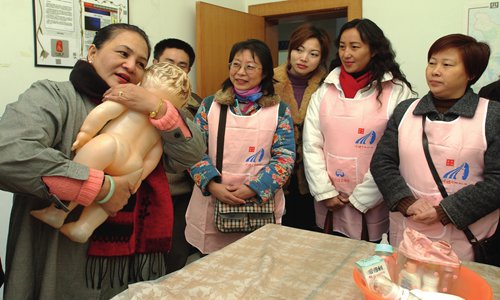Inside the vibrant towns of Hong Kong, Singapore, and all over the Middle Eastern side, a noiseless staff humbly toils behind closed entrance doors. Those are the foreign domestic helpers, generally women from your Philippines, Indonesia, and other Oriental countries, who leave behind their homes and families to seek employment opportunities abroad. Whilst they could visualize far better lives for their selves along with their family and friends, the reality they encounter typically drops lacking their dreams. The journey of any foreign domestic helper generally starts off with optimistic aspirations. Faced with restricted work opportunities and economic hardships with their residence countries, many women see working internationally being a way to financial stability and self-reliance. They visualize delivering money back home to support their families, providing their children with much better education, and perhaps even preserving enough to build an appropriate upcoming. Nevertheless, upon appearance, these dreams collide with the unpleasant realities in their new lives. Several find themselves living in crowded quarters, typically in the homes of the employers.

Their status as foreign workers leaves them at risk of exploitation, with restricted legal protections and recourse for grievances. Segregated from their families for prolonged time periods, they put up with profound thoughts of loneliness and homesickness. They lose out on considerable occasions with their loved ones’ lives, from birthday celebrations to graduations, giving up their very own presence for the sake of financial balance. Furthermore, the stigma connected to domestic work more compounds their struggles. In societies where domestic helpers are often thought to be secondly-class residents, these women face discrimination and marginalization. They may experience prejudice depending on their nationality, race, or social reputation, exacerbating their sensation of isolation and alienation. Regardless of these formidable obstacles, numerous foreign domestic helpers display outstanding resilience and determination. They pull strength off their faith, their friendships with other helpers, and their unarguable commitment to supporting their families back home. By way of operates of solidarity and reciprocal support, they create communities in their used countries, finding solace and camaraderie in shared experiences.
Endeavors to boost the lives of foreign domestic helpers are underway, albeit slowly and gradually. Advocacy groups and grassroots organizations drive for higher legal protections, honest wages, and enhanced working conditions. Some countries have applied reforms to safeguard the rights of domestic workers, recognizing their crucial contributions to society. Even so, purposeful change requires wide spread changes in behaviors and policies. It demands recognition of the built in dignity and worth of most individuals, regardless of their occupation or immigration status. It entails dismantling the components of exploitation and discrimination that perpetuate inequality and injustice. In the end, 僱傭中心 provide a poignant representation of the distributed humanity. Their stories point out to us of the sacrifices manufactured in pursuit of a better life, the resilience shown in the face of adversity, along with the long lasting expect for a much more just and equitable world. While we take a look at their activities, we have been motivated to face our own complicity in perpetuating systems of oppression as well as to endeavor for a future where dignity and justice succeed for all.